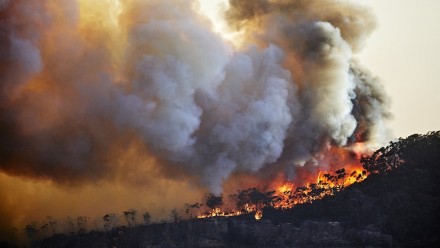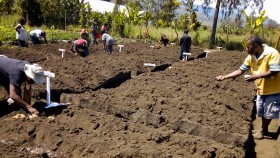What tipping points are telling us
Lately, you may have heard someone say that we have reached a “tipping point.” This year alone, with the economic downturn caused by the Covid-19 pandemic and the sustained civil unrest sparked by the killing of George Floyd by a Minneapolis police officer, we have witnessed dramatic shifts in our social and economic states of being.
These events may even have resulted in you or someone you know reaching a personal tipping point, such as the loss of a job or a large rift in a family regarding social perspectives. Big or small, these shifts — spurred by disruptions — indicate that in some way a point between the way things were in the past and the way they’ll be in the future has been met and passed.
Ecosystems are also subject to disturbances and major shifts. A wildfire clears a forest, creating conditions for new tree species. Agricultural runoff pollutes local waters, depleting the oxygen fish need to thrive.
Sometimes the change that is taking place is relatively small and reversible. But sometimes the change is large and extremely difficult, if not impossible, to reverse. It’s as though the entire system has taken a plunge over the edge of a precipice to a new place. That, in essence, is what a tipping point is.
Being aware of when systems are headed toward this kind of change is the first step to being able to avoid undesirable plunges, encourage desirable ones or nudge systems that are in an undesirable state toward a desirable one.
Read the full article on the Cosmos website, featuring Prof Brian Walker











